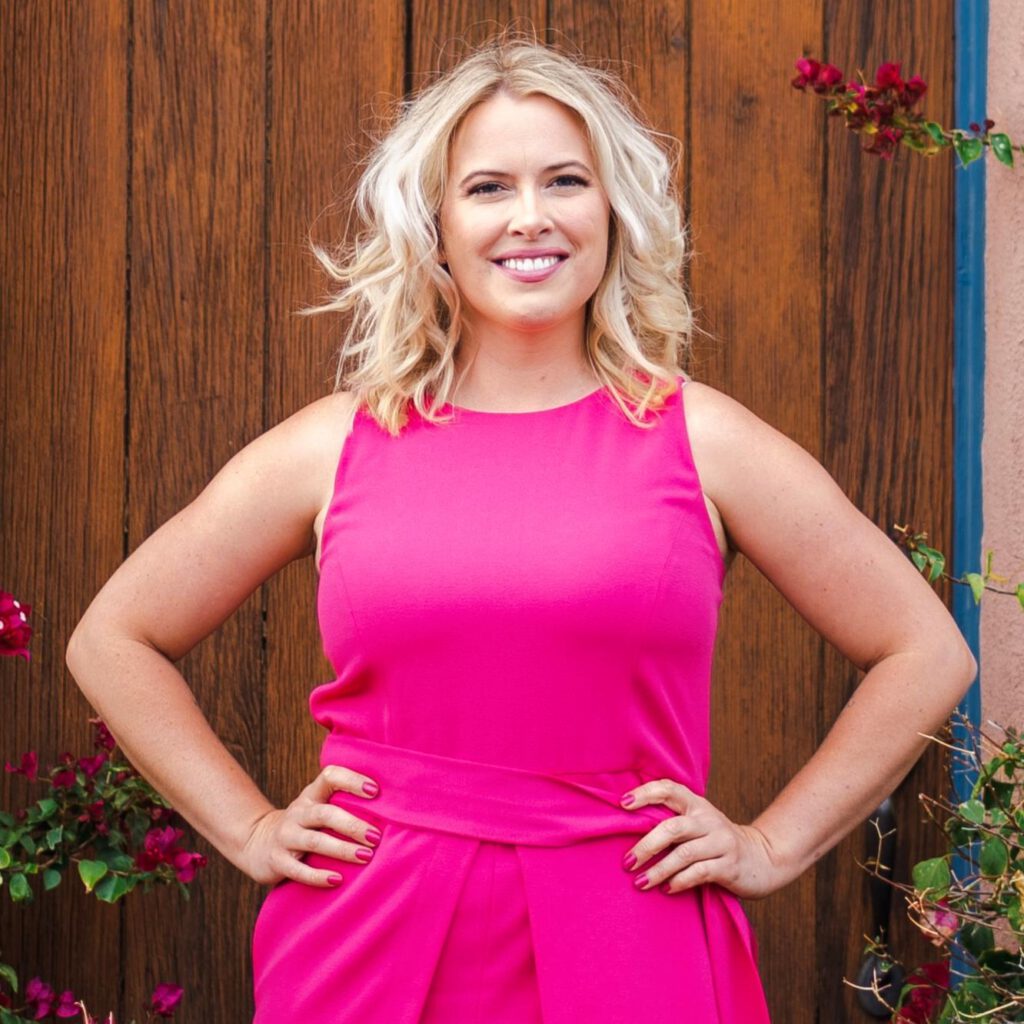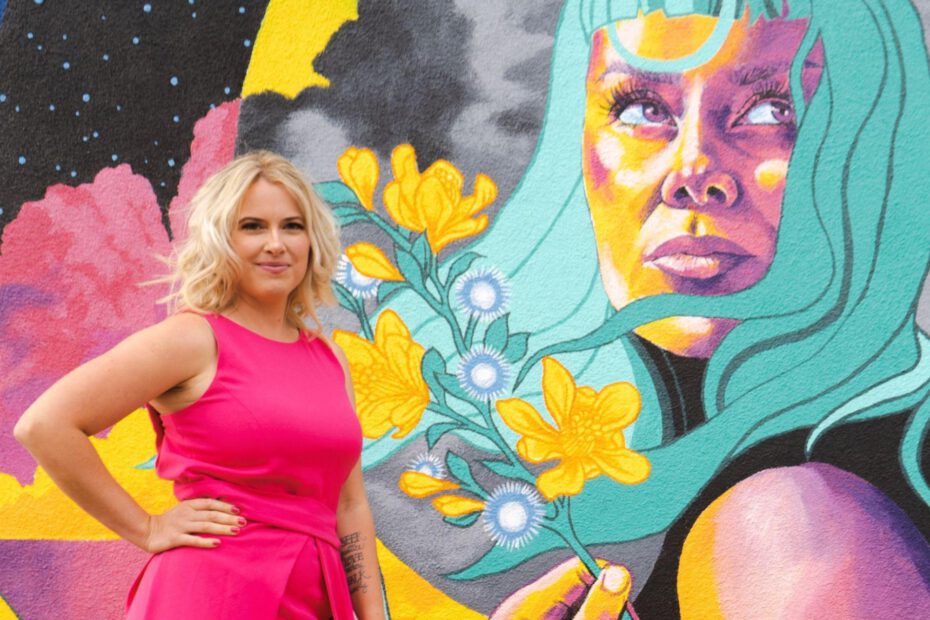Recently, Roe v. Wade , a Supreme Court ruling that the United States generally protects a pregnant woman’s liberty to choose to have an abortion, was overturned. Our own, Lindsay Nelson, shares her abortion story and reflects on what this ruling will mean for young people moving forward.
I was 21, married, and multiple times my abusive spouse took my birth control pills away from me and raped me as a scare and control tactic.
I am incredibly grateful everyday that I didn’t become pregnant. Every pregnancy scare I cried uncontrollably imagining having to choose if I’d have an abortion, as I was raised very anti-abortion, or brought another human who I couldn’t protect from the volatility and violence.
When, after 5 years of abuse, I fled from him and my normally reliable car broke down a few miles from our apartment, I prayed he wouldn’t find me with my suitcase, something I couldn’t explain away. I prayed my late period was just from the stress.
'I am incredibly grateful everyday that I didn’t become pregnant.'
At 25, working on my masters degree in public administration so I could better serve survivors like myself, I was so thankful I was able to get an IUD and not be scared a forgotten pill could end my studies.
At 32 in 2019, when I was living in Portland, Oregon (USA), despite having an IUD, I became pregnant. I was incredibly ill and couldn’t even keep water down for 10+ days. Every visit, the doctors gave me contradicting info on whether it was ectopic, the gestational age, attached to the IUD and would push the IUD to puncture organs, and whether I needed to be hospitalized. They couldn’t find the heartbeat, but all other signs pointed to the pregnancy being viable. Because the clinic rented space from a hospital that was founded by a religious organization, they couldn’t talk about the most obvious thing: that it was an unplanned and unsafe pregnancy; I clearly didn’t want to nor couldn’t carry the pregnancy to term and needed an abortion. They could take the IUD out and hope I would naturally miscarry, but days later the fetus appeared intact, no miscarriage occurred. I then scheduled an abortion at my local abortion clinic.
'I clearly didn’t want to nor couldn’t carry the pregnancy to term and needed an abortion.'
My parents were beginning to see the nuances of the need for abortion and how if I didn’t have one, they’d be caring for me my whole pregnancy as well as my potential child when we moved back in with them. These staunch pro-life people were very surprised that what I needed was considered an abortion under the laws they wanted so badly to end. They marched to end abortion in the limited examples they imagined: were womxn were “irresponsible” having consensual sex and not using a condom/contraceptive and didn’t want to be a mom (which, like any person’s reason for abortion, is a completely valid reason). They and many fighting for abortion bans don’t think it covers when a womxn’s 99.99% effective contraception fails, a very wanted pregnancy as a result of IVF isn’t viable, a pregnancy that comes from abuse and coercion, often when there are already multiple kids in the home who can’t be cared for. The reversal of Roe v Wade means that these pregnancies can’t be terminated and will result in injury, chronic illness and death. While my parents still want abortion limited, after seeing my experience and medical need, they do understand how over-reaching abortion bans grossly overlook individuals’ experiences and can have many unintended consequences.
'The reversal of Roe v Wade means that these pregnancies can’t be terminated and will result in injury, chronic illness and death.'
Being in a liberal pro-choice city, I was surprised to find the soonest appointment was weeks out, which would likely change it from a medicine to surgical abortion, and that despite having insurance, the total out-of-cost would be $550-$1100. Little did I know this was incredibly subsidized. I knew my medical bills were racking up already, but would be astronomically larger should I try to continue the pregnancy (never mind to have a child), as my doctor at that point said I’d have to likely spend the rest of the pregnancy in the hospital. I booked the appointment. A few days later when my doctor still couldn’t find the heartbeat, they sent me to a higher definition imaging, to find out that the embryo had miscarried and that only the gestational sac was left. My body was still convinced I was pregnant, with pregnancy hormones climbing daily.
I had four options:
1) Wait to see if my body would continue to miscarry, in which I would continue to be very sick and my business would have to shut down, also meaning that my employees would be laid off
2) Take abortion pills. However, considering how sick I was, I would likely end up in the hospital for aftercare.
3) Go under anaesthesia in the hospital and pay $6000+ with insurance for a Dilation & Curettage (D&C, the same incredibly safe procedure used for a surgical abortion) to have the sac surgically removed or
4) Do the same D&C awake in the clinic for $2000.
I chose option #4 and while it was very traumatizing because they didn’t explain well what to expect and it triggered my PTSD, I was very glad to have the ordeal behind me and begin my recovery.
'This experience completely changed my view of reproductive health and rights.'
This experience completely changed my view of reproductive health and rights. I think of the millions of girls and women who have gone through the same things I have, but have been less lucky. Who had to have abortions or children with their abusers. Who had to drop out of school because of a pregnancy. Who, even if they used birth control correctly, still became pregnant. Who, when their pregnancy threatened their health, didn’t have family/friends to take care of them or access to healthcare, which resulted in long-term illness or death.
I had to learn and act. I traveled abroad to take classes in global maternal health and international human rights law. I volunteer as a clinic escort, protecting patients’ privacy from harassing protestors, and have spoken to hostile legislators and in front of crowds, including our opposition carrying assault weapons.
'The pandemic has created a backlog in all medical services, SRH included.'
I joined Stories to Action to amplify youth’s voices in their similar struggles with their sexual and reproductive health and rights, especially during COVID, and now in the face of abortion bans. The pandemic has created a backlog in all medical services, SRH included. I experienced this too, as I had a hard time getting an appointment to replace my IUD and ended up going two years without a pap smear, which resulted in me needing a procedure this year to remove growing malignant cells on my cervix. I knew if the pandemic were happening while I was married to my abuser, the domestic violence would have been so much worse and inescapable. Youth’s access to comprehensive sexual education, condoms, contraception, and abortion services has become extremely limited around the world, disproportionately affecting marginalised communities. So many groups were very creative and utilized technology to reach and support young people in new ways.
One great SRHR win that came out of the pandemic is now threatened. Self-managed abortion, a very safe way with medicine to terminate a pregnancy at home, became available via telehealth in many places in response to stay at home orders. This should be continued even if the pandemic ends, as the access barrier is greatly reduced for girls and women to safely terminate an unwanted pregnancy. Tragically, in the U.S., with the Supreme Court’s decision to overturn historic Roe v. Wade, not only surgical but also medication abortion is getting banned in many states, some demanding manufacturers of mifepristone and misoprostol cease production (despite being prescribed individually for chronic illnesses.)
'When these things happen to the loved ones of those who pushed for the end of Roe v Wade, will they realize they didn’t know these were abortions they were banning and the resulting death?'
My abortion/miscarriage experience is an extremely common one, but many anti-abortionists who cheered on the court’s decision had no idea this and many other healthcare is considered abortion and they are now outlawed. Youth will die from ectopic pregnancies and prolonged miscarriages. Nonviable pregnancies will have to be carried to term just to watch the baby (and possibly the mother) suffer and die during/upon delivery. Young womxn will be injured or killed by their abusive partners since pregnancy is the second most dangerous time in an abusive relationship. Others will give birth from rape and have to deal with the abuser for decades because of the child, even if they can escape.
When these things happen to the loved ones of those who pushed for the end of Roe v Wade, will they realize they didn’t know these were abortions they were banning and the resulting death?

About the Author: Lindsay Nelson is a survivor of traumas, from sexual assault to a wide variety of retraumatizing OB/Gyno procedures with doctors not trained in trauma-informed services . Her education includes: Bachelors in Human Services, Masters in Public Administration, Global Classes at Utrecht University, Harvard, and more on Global Health, Human Rights, Community-Based Health, and more.
She served and advocated for survivors for decades: from victims advocate to post-prison supervision interpreter. She focused her Masters Thesis and advocacy efforts, from local to international, on trauma-informed community justice reform. Lindsay served on sexual assault hotlines and as emergency hospital and crime response. She has served sex workers and sex-trafficking survivors from Oregon, USA to Thailand.
Lindsay uses her passion for ensuring equal, legal, fair access to trauma-informed Sexual and Reproductive Health Rights (SRHR) to: Volunteer Locally in Arizona, USA, as an Escort for Planned Parenthood so everyone can have safe access to all the services they provide; Speak publicly about reproductive rights; Run Stories to Action’s Social Media; Advocate for state, national, and global laws and funding for SRHR; Coach individuals and train healthcare groups on Trauma-Informed Care and Patient Advocacy; Bring Awareness about Egg Freezing & IVF options, and Advocate for Employers and Insurers to Offer Greater Fertility Benefits as part of Holistic Health/Family Benefit Packages.
